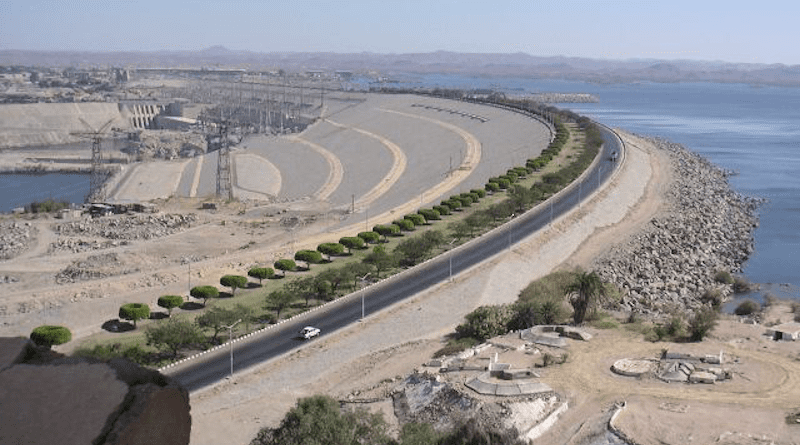Egypt’s Water Management Efforts On The Right Course – Analysis
Egypt’s water and climate change program is beginning in earnest. The country’s water projects are attracting attention for all the right reasons, as the Grand Ethiopian Renaissance Dam is now operational and is creating an issue Cairo must address.
Egypt is trying new approaches to water security and resources as part of its attempts to tackle climate change. It is hosting COP27 this year, so Cairo is making the most of this important moment. This factor is why water and irrigation projects are starting in earnest in Lower Egypt.
President Abdel Fattah El-Sisi this month issued directives to expand the application and dissemination of the modern irrigation system for agricultural land nationwide, due to the speed of its implementation and water rationalization. Egyptian irrigation methods are also receiving a boost from knowledgeable experts.
El-Sisi’s directions were given to Prime Minister Mostafa Madbouly and Minister of Water Resources and Irrigation Mohammed Abdel Aty to review water projects countrywide, especially in the south, by reintroducing an old idea of updating the canal and aquifer systems.
This shift toward modern irrigation systems, as well as developments in the national project for the lining of thousands of kilometers of canals, are major projects and an admission that the GERD is now a reality for Cairo, despite endless threats and negotiations with Addis Ababa. The project to line the canals in Sohag Governorate is one of the most important in the country as it aims to ensure that water is not wasted. Some 212 canals, with a total length of 640 km, have been lined in the province.
Egypt already has five renewable and non-renewable aquifers: Moghra, the carbonate aquifer, the Nubian Sandstone Aquifer System, Toshka, and an aquifer in Tor Sinai. The Nubian Sandstone Aquifer System, which also serves Libya, Sudan and Chad, is the largest in the world at about 2.2 million square meters. It saw a decline in its level due to Libya’s creation of the Great Man-Made River during the Muammar Qaddafi era. With Egypt’s new relations with Libya, the stress on this aquifer might be resolved through irrigation and water management efforts.
Cairo is now seeking greater cooperation with fellow African countries in the field of irrigation. These joint efforts are to focus on digging groundwater wells, developing waterways, equipping specialized centers for rain forecasting, rehabilitating ports, and training programs for local inhabitants. A plan to link Lake Victoria with the Mediterranean is also on the drawing board in an effort to maximize the benefit of river navigation and increase trade. These efforts will help address climate change and boost Egypt’s hosting of COP27 in November.
Upgrading the Aswan Dam is another major Egyptian policy objective in terms of climate change programs. The German KfW Development Bank is helping to finance an agreement worth $28.3 million for phase two of the rehabilitation of hydroelectric power plants in Aswan Governorate. The project aims to replace and renew the transformers of the water stations in the province to increase the amount of electricity they generate.
The Egyptian government is also improving the wastewater treatment plants in Lower Egypt to help offset the country’s water loss. The new Al-Hamam wastewater treatment plant on Egypt’s north coast aims to reclaim land for agriculture in the Nile Delta using treated drainage water. A total of 26 percent of the project has been completed so far.
Bahr Al-Baqar, which is the world’s largest wastewater treatment plant, was inaugurated in Port Said in September 2021. But Al-Hammam is going to be even larger, with both projects turning high-salinity and drainage water from a problem into a development opportunity. The Ministry of Water Resources and Irrigation’s plan is to treat 1.5 million cubic meters of water daily from 2025 and 6.4 million cubic meters by 2050. The Al-Hammam plant will treat water coming from farms in the northern delta to establish new farms on more than 500,000 feddans in the western delta.
Overall, Egypt is making headway in its water security program because there are no other choices for fixing its water supply system in a logical manner. Doing so will help the country meet its agricultural requirements, as food security is wrapped up in the latest water management developments.

